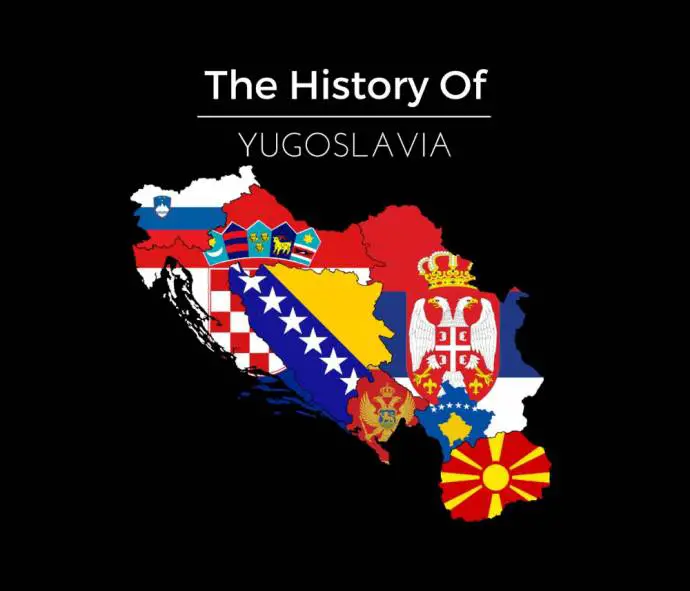June 21 2018

The man himself
How did you get into Yugoslavia?
Until last year, I was at the University of Sheffield for my undergraduate and master’s history degrees, and over the course of those I got really intrigued by the ideas of ethnic identity and nationalism, and in particular the Balkans, until by my master’s degree I was heavily focusing my work on the former Yugoslavia. Since graduating, I’ve been based back in my hometown in West Yorkshire, but in the autumn I’ll be starting a PhD on the Bosnian Peace Process, and in particular the role of international mediators in it, at the University of East Anglia in Norwich.
What are some of the surprising things you’ve learned while doing the podcast?
Joseph II, who ruled the Austrian Empire (including Slovenia, Croatia, and Vojvodina) in the 1780s was a man surprisingly ahead of his time. I knew he was regarded as an “enlightened despot”, but he was also the Great Emancipator 80 years before Abe Lincoln, liberating millions of slaves and serfs in his realms, and I think it’s a shame more people don’t know about that.
Also, while it may seem an obvious point, I’m always intrigued by how strange some early nationalist proposals for new countries can seem in hindsight. For example, Rigas Feraios, an early Greek nationalist thinker in the late 18th Century, took it for granted that the future independent Greece would include all Ottoman territories in Europe – so what is now Bulgaria, Romania, Macedonia, Serbia, Bosnia – he assumed that these would all be parts of Greece.
What episodes are your favourite so far?
Well, the thing is, usually by the time I’m doing the actual work of writing and recording episodes, it’s been several weeks since I actually did the main research and note-taking. So ironically, when I’m actually writing it’s not as interesting to me as it was when I first researched it. So on that basis my favourite episode is probably my interview with Jasmin Mujanović about his new book [Hunger and Fury: The Crisis of Democracy in the Balkans, Amazon], because in that one I was learning a lot while producing it! Also, not just taking an opportunity to plug the premium episodes on my Patreon, but I’m pretty pleased with how they’ve turned out so far.
The series on Patreon is a more theoretical one, focusing on various historical and historiographical concepts related to Yugoslav history. So far I’ve released one on ethnicity and nationalism, and the first half of a two-parter on ethnic cleansing, with the second half due out by the end of June, if not earlier.
Which stories are you looking forward to telling in future shows?
I’m not sure “looking forward to” is the right way of putting it, given both have more than their fair share of horrors, but both World War II in Yugoslavia, and the final collapse in the early 1990s, are stories I’m intrigued by and very much want to tell as best I can.
Who is a figure in Yugoslav history more people should know about?
In addition to the aforementioned Joseph II, two 19th Century Croatian Catholic priests, Josip Strossmayer and Franjo Rački. They’re pretty well-known in Croatia itself, and among historians of the region, but not so much among the wider world. But Yugoslavia was their idea!
Slovenia doesn’t seem to feature much – why is this?
In short, because the pre-1918 Slovene lands lacked both independence, and any institutional memory of independence that preserved an autonomous political arena. The best comparison here is Croatia, because both Slovenia and Croatia were ruled by Austria for centuries until 1918. Croatia hadn’t been independent for over 800 years by that point, but through all those centuries they’d managed to maintain Croatia’s political existence within the Empire – Croatia’s parliament, laws, native elite, etc had all survived, serving as a reminder that once upon a time, Croatia had been a separate state.
Slovenia didn’t have that – its autonomy had largely been abolished and replaced by centralized Austrian control – its native elites had been abolished and replaced by German nobles very early on, and the Slovenes as an ethnic group were scattered across several administrative units. This meant there was space for an autonomous Croatian political arena to emerge in the mid-19th Century, whereas there was much less space for a Slovenian one.
Do you have anything planned when this series is finished?
I feel that’s still a while away for the moment. I can’t say I’ve thought about it much, it really depends where I am academically when I finally finish. I certainly like to think I’ll do another history podcast project, but I don’t want to get ahead of myself when I don’t see a finish to this one coming for another two or three years.
Which ex-Yugo nations have you visited, and what were your impressions?
I’ve been to Zadar and Zagreb in Croatia, and Belgrade in Serbia, which were both great, and next month I’ll be doing the Peace March (to commemorate the Srebrenica massacre) in Bosnia, which will be my first time there.
What books and so on do you recommend for those who want to learn more about the history of Yugoslavia?
There’s everything on my bibliography as a starter. It’s a work in progress and I’ll add to it more and more as I go through the podcast, though so far it’s just the main research books I’ve been using to put the series together.
The Death of Yugoslavia, the BBC Documentary from the mid-1990s that came more or less hot on the heels of the end of the wars in Bosnia and Croatia still holds up pretty well as an introduction to the final collapse of Yugoslavia, as is the accompanying book by Laura Silber and Alan Little. For the period I’ve been covering on the podcast so far, namely the 19th and early 20th Centuries, I’d recommend the work of Barbara Jelavich as a good starting point. Fred Singleton’s The History of the Yugoslav Peoples is a pretty good run through the whole history of the region, though it was written in 1985, so Singleton more or less stops at Tito’s death, and obviously couldn’t know what was to come just a few years later.
And you can follow Alex, and his podcast, at various places online, with the two official sites here and here.



